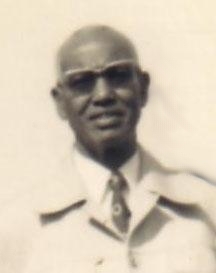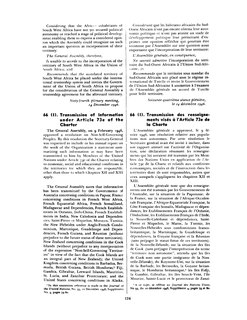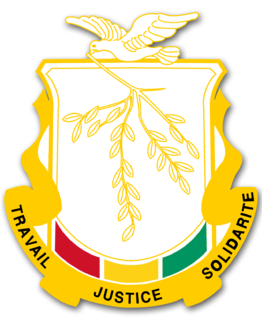Djibouti is a country in the Horn of Africa. It is bordered by Somalia to the southeast, Eritrea and the Red Sea to the north and northeast, Ethiopia to the west and south, and the Gulf of Aden to the east.

Politics of Djibouti takes place in a framework of a presidential representative democratic republic, whereby the executive power is exercised by the President and the Government. Legislative power is vested in both the Government and the National Assembly. The party system and legislature are dominated by the socialist People's Rally for Progress. In April 2010, a new constitutional amendment was approved. The President serves as both the head of state and head of government, and is directly elected for single six-year term. Government is headed by the President, who appoints the Prime Minister and the Council of Ministers on the proposal of the latter. There is also a 65-member chamber of deputies, where representatives are popularly elected for terms of five years. Administratively, the country is divided into five regions and one city, with eleven additional district subdivisions. Djibouti is also part of various international organisations, including the United Nations and Arab League.

"Djibouti" is the national anthem of the Republic of Djibouti.

Venda was a Bantustan in northern South Africa, which is fairly close to the South African border with Zimbabwe to the north, while to the south and east, it shared a long border with another black homeland, Gazankulu. It is now part of the Limpopo province. Venda was founded as a homeland by the South African government for the Venda people, speakers of the Venda language. The United Nations and international community refused to recognise Venda as an independent state.

Hassan Gouled Aptidon was the first President of Djibouti from 1977 to 1999.

Elections in Benin take place within the framework of a multi-party democracy and a presidential system. Both the President and the National Assembly are directly elected by voters, with elections organised by the Autonomous National Electoral Commission (CENA).

Elections in the Comoros take place within the framework of a multi-party democracy and a presidential system. The President and the majority of the seats in the Assembly of the Union are directly elected.

Elections in Niger take place within the framework of a semi-presidential system. The President and National Assembly are elected by the public, with elections organised by the Independent National Electoral Commission (CENI).

Elections in Syria gives information on election and election results in Syria.

The Ogaden War was a Somali military offensive between July 1977 and March 1978 over the disputed Ethiopian region of Ogaden, which began with the Somali invasion of Ethiopia. The Soviet Union disapproved of the invasion and ceased its support of Somalia, instead starting to support Ethiopia; the United States, conversely, ceased its support of Ethiopia and started supporting Somalia. Ethiopia was saved from a major defeat and a permanent loss of territory through a massive airlift of military supplies, the arrival of 16,000 Cuban troops, 1,500 Soviet advisors and two brigades from South Yemen, also airlifted to reinforce Harar. The Ethiopians prevailed at Harar, Dire Dawa and Jijiga, and began to push the Somalis systematically out of the Ogaden. By March 1978, the Ethiopians had captured almost all of the Ogaden, prompting the defeated Somalis to give up their claim to the region. A third of the initial Somali National Army invasion force was killed, and half of the Somali Airforce destroyed; the war left Somalia with a disorganized and demoralized army and an angry population. All of these conditions led to a revolt in the army which eventually spiraled into a civil war and Somalia's current situation.

The United Nations list of Non-Self-Governing Territories is a list of places that the United Nations General Assembly deems to be "non-self-governing" and subject to the decolonization process. Chapter XI of the United Nations Charter embodies a "Declaration on Non-Self-Governing Territories" which declares that the interests of the occupants of dependent territories are paramount and requires member states of the United Nations in control of non-self-governing territories to submit annual information reports concerning the development of those territories. Since 1946, the General Assembly has maintained a list of non-self governing territories under member states' control. Since its inception, dozens of territories have been removed from the list, typically when they attained independence or internal self-government, while other territories have been added as new administering countries joined the United Nations or the General Assembly reassessed the status of certain territories.

The French Community was an association of former French colonies, mostly from Africa. In 1958 it replaced the French Union, which had itself succeeded the French colonial empire in 1946.

An independence referendum was held in the Comoros on 22 December 1974. The overall result was a strong "yes" vote, with 94.57% of voters voting for independence and almost all the "no" votes being cast in Mayotte, where there was a majority for remaining under French control. In contrast, on Mohéli only five out of 6,059 votes were against independence. Voter turnout was 93.3%.

An independence referendum was held in French Somaliland on 19 March 1967. It was ordered by then President of France, General Charles de Gaulle, in response to rioting and demonstrations upon an official visit he made to the territory the year before.

An election for the Constituent Assembly was held in the French Territory of the Afars and Issas on 8 May 1977 alongside a referendum on independence. The elections were boycotted by the National Union for Independence and the Popular Liberation Movement, resulting in the People's Rally for Independence winning all 65 seats.

A referendum on autonomy was held in French Togoland on 28 October 1956. Since World War I the territory had been a League of Nations mandate, then a United Nations Trust Territory under French control. The referendum offered residents the choice of remaining a Trust Territory or becoming an autonomous region within the French Union. The result being 93% in favour of the latter, with a 77.3% turnout. However, the referendum was rejected by the United Nations General Assembly as it had not included the option of independence and opted to continue with the trusteeship. In neighbouring British Togoland, a referendum earlier in the year had resulted in the territory becoming part of Ghana.

A constitutional referendum was held in Guinea on 28 September 1958 as part of a wider referendum across the French Union on whether to adopt the new French Constitution; if accepted, colonies would become part of the new French Community; if rejected, the territory would be granted independence.

An independence referendum was held in New Caledonia on 4 November 2018. Voters were given the choice of remaining part of France or becoming an independent country.















